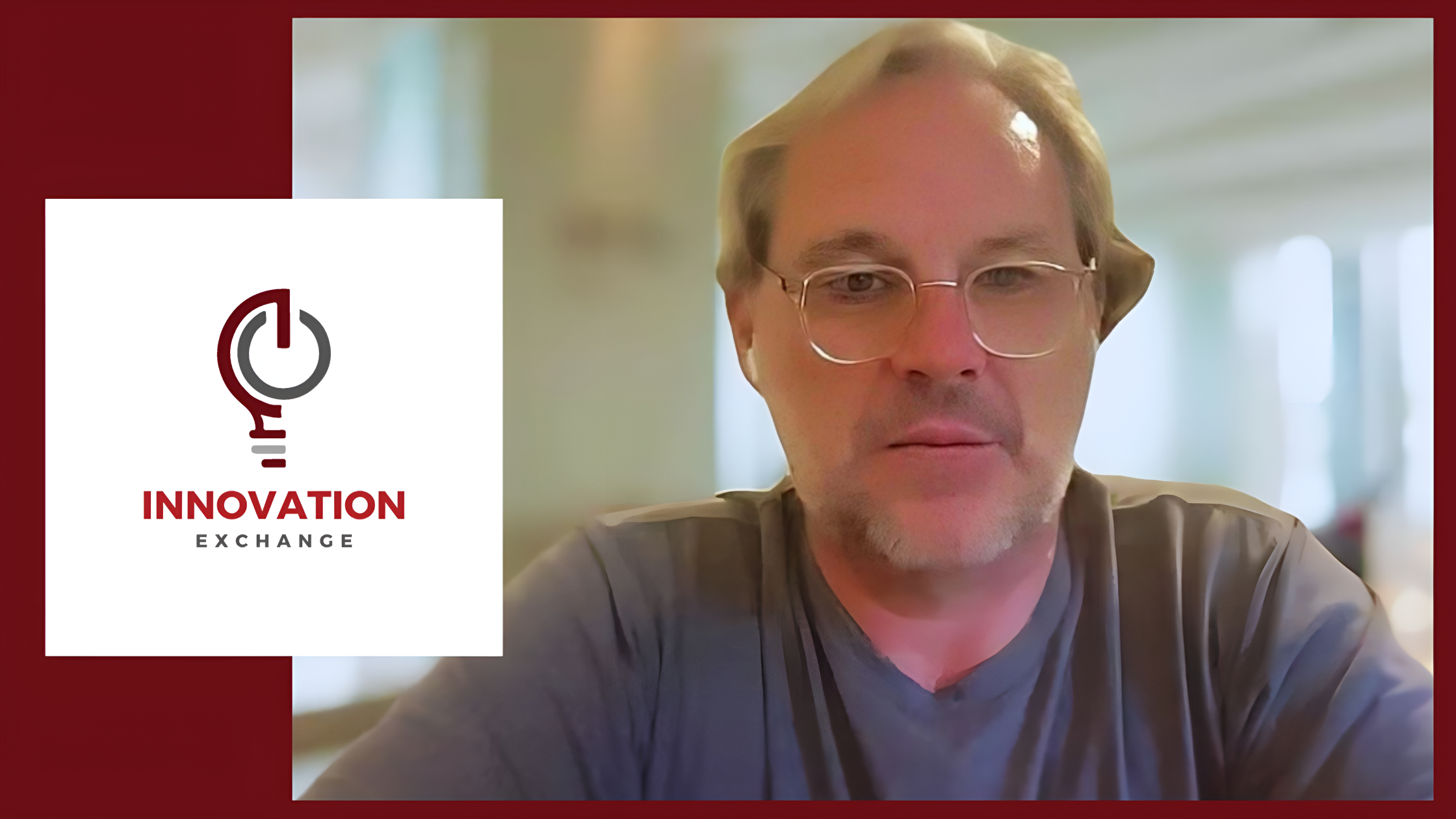AsiaTechDaily – Asia's Leading Tech and Startup Media Platform

Founders should consider pre-Seed to Series A fundraising as full-time job – Phylicia Koh, VP, Play Ventures
When starting a company, founders often underestimate the amount of time and energy required to fundraise.
Phylicia Koh, vice president at early-stage gaming venture capital firm Play Ventures, said effective fundraising is not only essential for securing necessary capital but also for demonstrating the commitment and resilience of the founding team.
In an interview with AsiaTechDaily, Koh emphasises the importance of founders taking an active role in the fundraising process.
“At the pre-seed to Series A stages, fundraising is a full-time job for the CEO and founders, on top of their other responsibilities at work and at home,” she explained.
Delegating this crucial task to middlemen can send a negative signal to potential investors, as it implies a lack of confidence and investment in the company’s future, Koh stressed.
Moreover, founders must learn to embrace the challenges of fundraising, honing their pitching and networking skills in the process. Koh urges startup founders to “put on their big person pants and git gud at it”, emphasising the need for them to showcase their abilities and dedication to their business.
Another common mistake founders make when raising capital is mishandling equity. Koh highlights the importance of avoiding poor deals and not giving away too much equity to advisors. This can ultimately factor into the decision-making process of potential investors, she added.
Founded in 2018, Play Ventures invests early into the most promising free-to-play and Web3 games studios and games services startups from across the globe.
Play Ventures meanwhile continues to focus on investing in early-stage gaming startups out of its existing funds. The Singapore-based venture capital firm raised $135 million for its Fund 2. Its debut fund closed in 2019 at $40 million.
In a recent interaction, Koh talked to AsiaTechDaily about her background and expertise in the VC funding space, the companies that Play Ventures focuses on, and other stuff that startup founders need to ponder on.
Interview transcript below:
What background and domain expertise do you have? And when did you first think about starting a fund?
I got into VC serendipitously, having spent the first 8 years of my career as an operator working in growth in startups and larger companies. After almost a decade of doing that, I was looking for a change, and so left and gave myself a year to explore new paths and opportunities.
The golden rule of that year was that I’d say “yes” to whatever came my way as long as I was able to work with startups (something I’m hugely passionate about) and I wasn’t doing something I already knew I didn’t want to do. I called it ‘A Year of Yes’ (even though it ended up being 1.5 years of this adventure).
My Singaporean parents thought I was crazy, that it was so risky taking this time off to do what they thought were very random things, but I had such a great time and an incredible learning experience. 100% I would recommend it to others!
As luck would have it, during this ‘1.5 Year of Yes’, I started consulting with a games company (a dream come true as a lifelong gamer), led product for a voice technology startup, and then met Henric and Harri, Play’s founding partners, as they were starting Play Ventures. I joined as an Analyst, and haven’t looked back since!
It’s been an incredible journey growing with the fund over the past 5 years. We started with a $40 million Fund I, then went on to raise a $135 million Fund II, and now have over $320 million assets under management. We are also in the midst of launching a new fund.
What types of companies/sectors do you look to invest in?
Play Ventures invests in the gaming industry – from free-to-play and web3 game development studios to gaming services, including infrastructure and tooling. Gaming services encompass anything in and around gaming.
This is a pretty broad bucket that includes Alter, an avatar technology company I led the investment into, which was acquired by Google last year, to Odeeo, an in-app audio advertising network that offers game developers a non-disruptive way of including audio ads in gameplay, to Tier One, a gaming entertainment company with over 1,100 gaming creators, talents, and gaming entertainment IP.
What is your typical investment range and how many startups do you invest in per year in general? Additionally, can overseas-headquartered startups get funding from you?
We invest in the best early-stage gaming startups and founders, at the pre-seed to Series A stages. Talent is not constrained by borders, so we invest globally, from India to Indiana. At the pre-seed stage, our checks generally range from $500K upwards.
What would be the KPI that you usually check about the startups’ growth? It may be diverse in each industry like LTV, CAC, MoM, etc. but it will be helpful to understand more about your additional investment factors.
We invest in the earliest stages. What I mean by this is that we are often speaking to founders who have recently left their corporate careers, or a prior entrepreneurship stint, and are thinking about their next move. They often haven’t incorporated and don’t even have a bank account, much less any meaningful metrics.
In those earliest pre-seed cases, we are evaluating the quality of the founding team, their dynamics, their experience, and the opportunity being pursued.
Questions we ask founders and ourselves are myriad and include: is this a blue ocean opportunity within gaming? Or a red ocean? Do the founders understand the genre? Do they have past genre mastery? How does that fit in with the opportunity they’re pursuing and what are the skill gaps on the founding team to be successful?
Experience at large, storied, gaming giants is great but does not necessarily translate into a strong founding team, so we ask if the founders are experienced in getting a game from 0 to 1, or are they a better fit when a game has proven engagement and now is at the stage of scaling? What are their hypotheses and assumptions? Do those make sense? How do they intend to acquire players?
At later stages, when there are gaming metrics to be evaluated, we look at things like player retention, cohort significance, payback metrics, and anything that would indicate that a game or business is likely scalable to become a top performer.
Right after being an investor like in the early days, there must be some tough times in building up the first fund along with building up a second fund or giving back the good returns to those LPs. If there is any similar tough time like this, please let us know more about it and how you (or your team) overcome the difficult times.
Great reputations and businesses take years to build but can be destroyed in days. Building games companies and building the VC business both take time, patience, incentive alignment, guardrails, and statistically, luck.
We understand that, and that the likelihood of our funds succeeding and having amazing DPI and returns for our investors is increased if the underlying companies succeed.
Our goal therefore as early-stage investors is to help our founders have the best chance possible of success. While other investors might be tempted to optimise for short-term gain and play zero-sum games with the founders they invest into, we take the long view in being ‘founder friendly’.
It is very much core to our DNA and how we work as investors; Play’s founding partners have each been in the gaming industry for decades
and were successful entrepreneurs who started and sold their companies to Disney and King respectively.
My partner of the last decade is also a gaming entrepreneur himself and so I have additional empathy for founders courageous and crazy enough to embark on this journey.
To be clear though, we’re not backseat wanna-be game designers living out our unfulfilled game developer dreams by trying to tell our founders what to do, nor are we founder-friendly pushovers. We see ourselves as a mix of cheerleaders, enablers (when it makes sense), sanity checks, and sounding boards.
That guides how we work with founders and thankfully, it seems to have paid off. Our founders have ended up being our biggest ambassadors and advocates, and that actually goes a long way.
What mistakes do you see founders make when raising money?
The first is shying away from the hard things, outsourcing leadership including the fundraising portion of it, and underestimating how much time, energy, and effort is needed to fundraise.
At the pre-seed to Series A stages, fundraising is a full-time job for the CEO and founders, on top of their other responsibilities at work and home. There’s so much at these early stages that are still unproven, unknown, and subject to headwinds or broader changes.
So much of the investment is still into talent, so as an investor, it’s a poor signal when you’re interacting with a middle person whom founders have outsourced fundraising, instead of directly with the founders.
If you’re not confident pitching, you need to put on your big-person pants and git gud at it. If you hate networking, you still have to hype yourself up and get it done. Show, don’t tell us why you’re a founder we should back all the way.
The second thing we often see is founders who have been careless with their equity. Sometimes this is giving away too much equity to advisors or just making poor deals which then factors into the investor’s decision-making.
What kind of startup or tech industry will impact the world in the future like 2-3 years locally in your view? (or what tiny/nonexistent markets today will be trillion-dollar markets in 10-20 years?)
The web3 market today is estimated to be $2.86 billion and is in its infancy. It is now going through a tough time and in an age of distrust.
The space has had bad eggs, coupled with poor understanding by the mass market of web3 (how many understand the difference between CEX and DEX and conflate the two to be the same?). The result is a lot of bad PR, lots of regulatory scrutiny, and a slowdown in the growth of users (demand) relative to previous years.
I think sometimes people forget in this fast-paced age that not everything was built in a day. The stock market didn’t emerge fully formed – it started in 1602 with the Amsterdam Stock Exchange and has evolved over 443 years through multiple peaks and crashes.
That’s why in the long term, I am personally still bullish on the space especially when it comes to what web3 technology can enable in gaming – true player ownership and trading with the possibility of incentive alignment and sustainable revenue generation for game developers through secondary royalties.
Another exciting space is the emergence of AI; there are legitimate concerns over ethics, guardrails, and readiness of the technology to be integrated into actual development workflows, but we already see huge leaps being made in a fairly short period, with great potential for improving the competitiveness and cost-effectiveness for smaller development teams, like what Unity did.
For example, Scenario which focuses on AI-generated game assets, is already being integrated into early concepts of game art and assets by artists. Plus Music is an adaptive audio AI platform that makes it easy for developers to license and integrate music into their games that is responsive to what is happening in-game, like a boss battle or victory moment.
What are the top three books, movies (TV series) or podcast episodes that changed your life and why?
There are so many, too many! I’m always curious about new and different things, and I’m a firm believer in standing on the shoulders of giants and learning from history. Here are my Top 3 picks:
a. Acquired is one of my favourite podcast series. Some of my favourite episodes are the ones on Benchmark, a16z, Enron, and Nintendo. They’re very broad in terms of the industries and businesses they get into, but they do a fantastic job and always give me food for thought.
b. Gamecraft is an 8-episode series by the legendary Mitch Lasky and Blake Robbins. For those interested in the history of modern gaming, I think this is a great one to invest time in though I think it skews Western in its perspective.
c. Principles by Ray Dalio – another legend, and a great one to read. I think a lot of what he talks about can be applied not just to professional work but our personal lives too.





